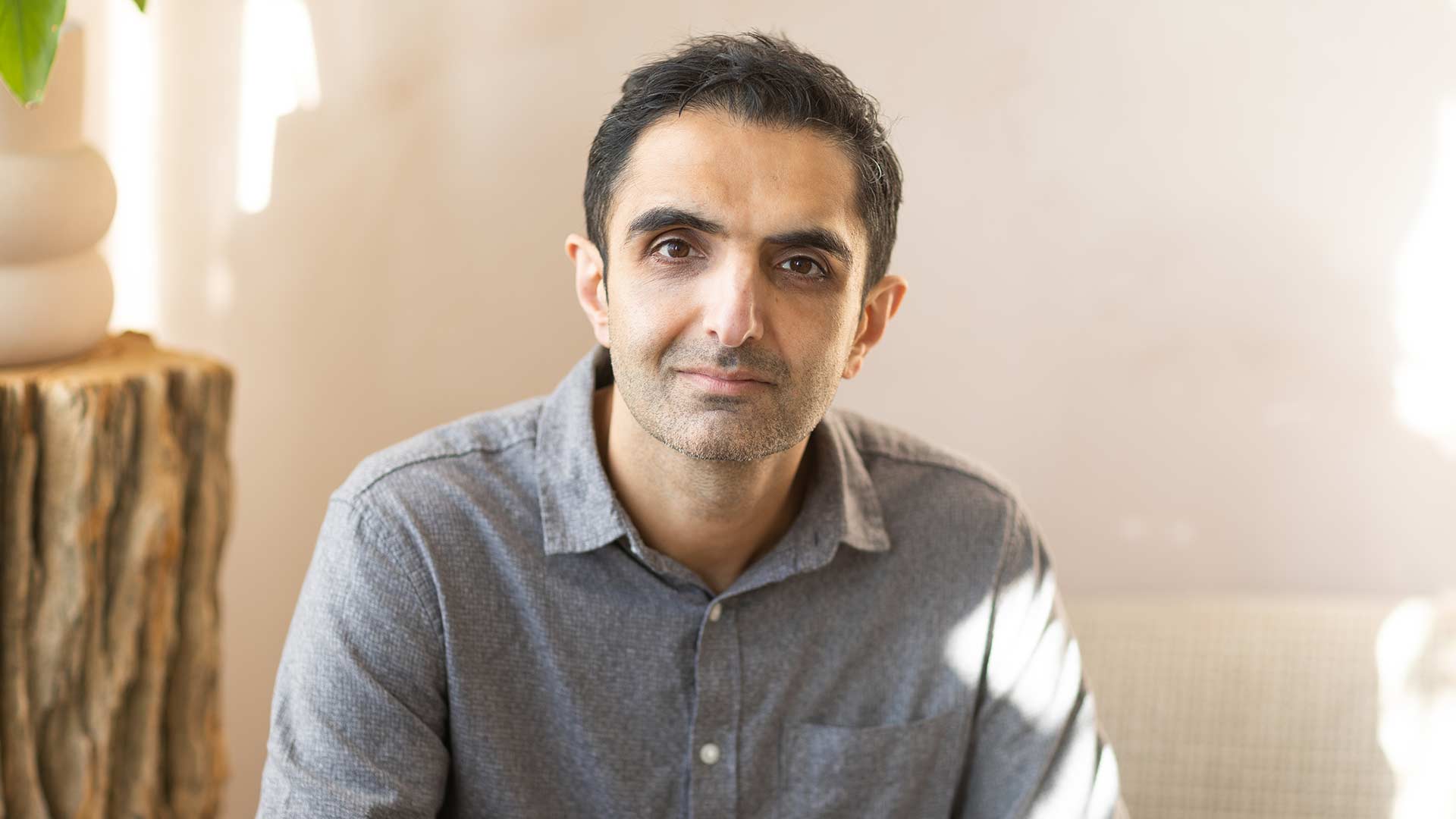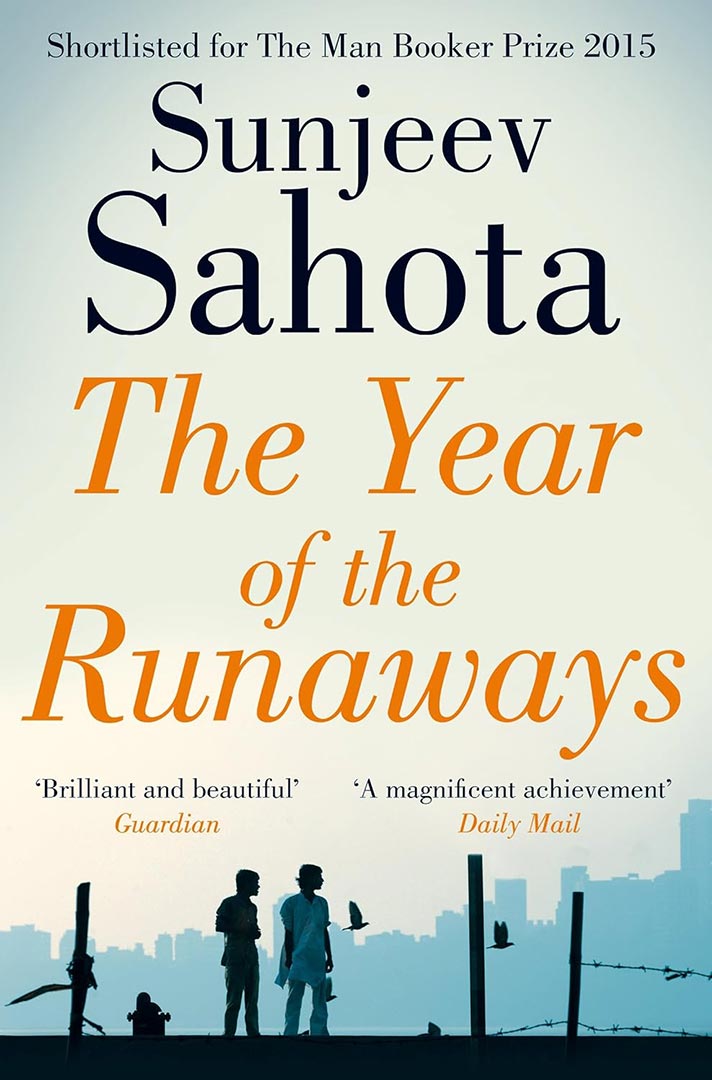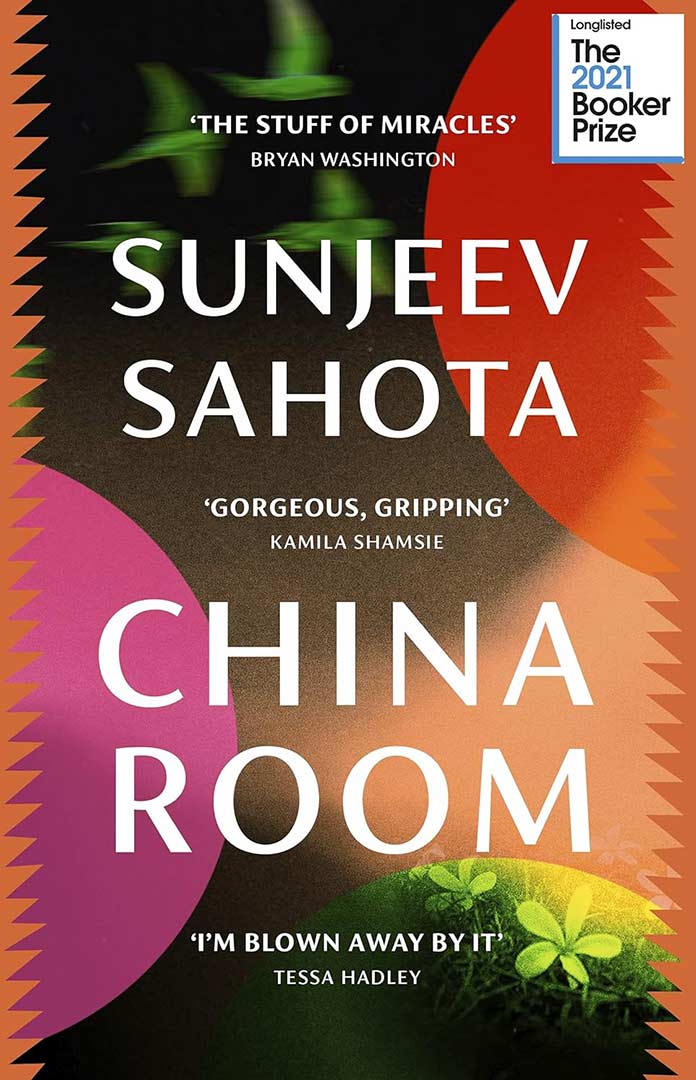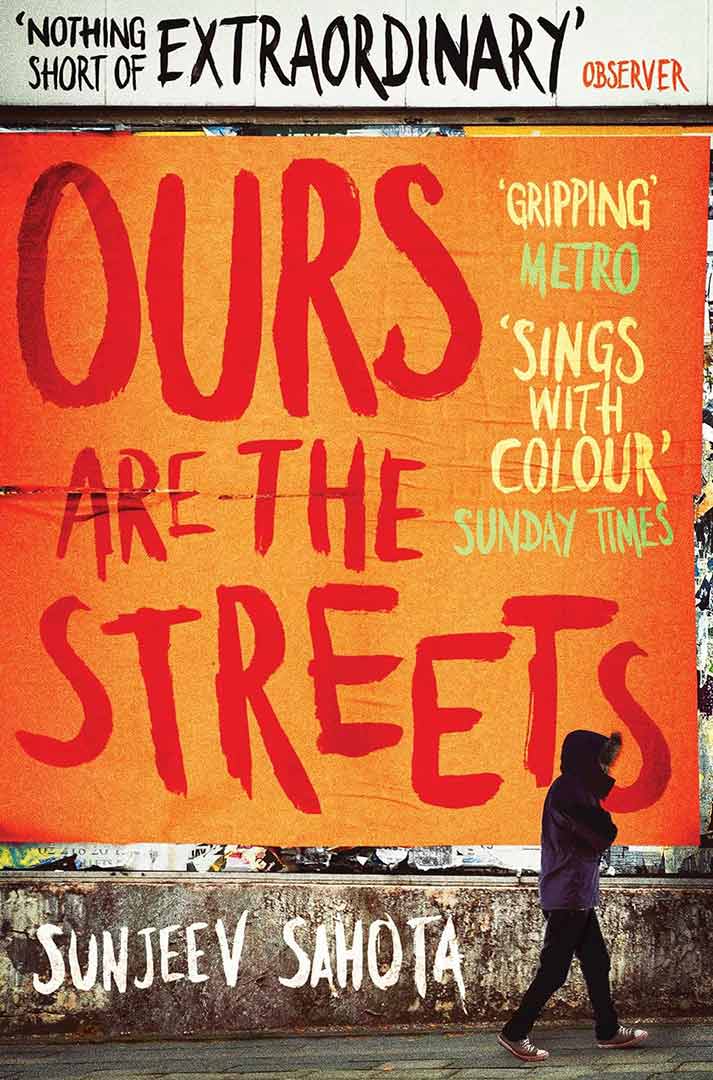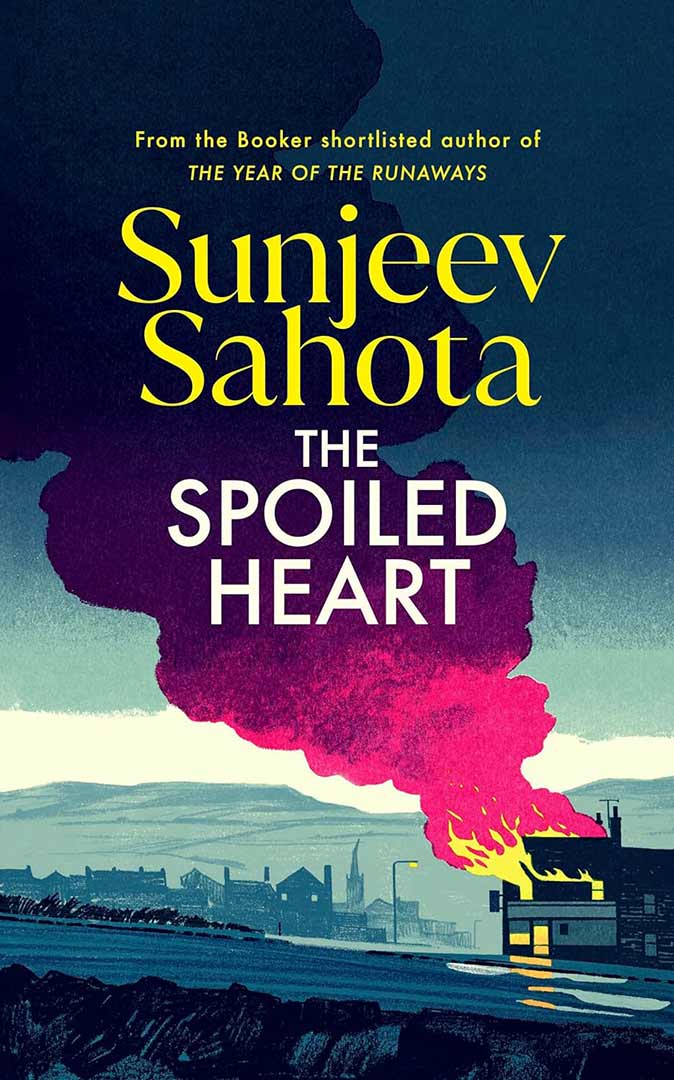Sunjeev Sahota on his latest novel The Spoiled Heart, a tale of family and politics
 Madeleine Feeny
Madeleine FeenyNew Titles Fiction Previewer
I compile the monthly New Titles: Fiction. A freelance critic and editor, I previously held ...more
Sunjeev Sahota’s latest book combines a tragic family mystery with the tale of a bitterly fought union battle.

New Titles Fiction Previewer
I compile the monthly New Titles: Fiction. A freelance critic and editor, I previously held ...more
My video interview with Sunjeev Sahota is briefly and sweetly interrupted by one of his children, of which there are three, aged 11, nine and seven. For while becoming a twice Booker-nominated author and Associate Professor in Durham University’s English department—not bad for a maths graduate who didn’t read a novel until age 18—Sahota has also been deep in the work of child-raising, a fact that informs his fourth novel, his most personal yet. Written with the depth of character and precision of language that distinguish the Derby-born author, The Spoiled Heart is a book about parenthood—the vulnerability, the effort, and, in one case, the shattering loss of it.
Sahota has established himself as one of our foremost writers with humanising novels that speak to the political moment: taking readers into the mind of a home-grown terrorist in Ours Are the Streets; into the hidden lives of illegal immigrants in The Year of the Runaways; and into the rural Punjab of his ancestors in China Room. He returns to the contemporary in The Spoiled Heart, the artfully structured story of one man’s downfall, which combines a family mystery with a union leadership contest and addresses the way that identity politics divide the Left.
Betraying his loosening ties with his motherland (his grandparents and father emigrated from Punjab in the 1960s), it is Sahota’s first book set entirely on British soil—all the others visit the subcontinent—and the first in Chesterfield, the former mining town where he grew up. He now lives in Sheffield, where witnessing his children’s middle-class upbringing has sparked reflection on his contrasting childhood. “They’re growing up in a place that hasn’t been immiserated and brought to heel and where their classmates haven’t been told that their problems are the fault of the cultural other.” The surprise has been finding that their comfortable relationship with England has eased his own, finally freeing him to look back on Chesterfield.
The Spoiled Heart is narrated by an “alter ego”, Sajjan—an intermediary in the style of The Great Gatsby’s Nick Carraway—who bears striking correspondences to Sahota. When asked if he, like Sajjan, hates discussing his work, Sahota explains how he finds writing fiction exposing, as if he’s standing in the rain in a howling gale, wearing a flimsy shirt.
Shifting chronologies
The seed for the novel came years ago, before China Room. After trying first and third person, and considering the best way to tell the story, Sahota hit on the outsider-narrator device. “I realised this writer figure was going to have to act a bit like a detective.” Shifting between chronologies, drip-feeding revelations, the resulting structure keeps you riveted as Sajjan leads you through the tragic mystery at the heart of the book.
Returning home to Chesterfield in February 2020, Sajjan is mistaken for Nayan Olak, the son of friends of his parents, fellow Sikh shopkeepers. Nayan’s name carries a ghastly weight, for his mother and four-year-old son were killed in a fire in 1997, causing his marriage to unravel. Sajjan discovers that Nayan has since left his role at the union and become an anti-racist activist. Sensing a story, drawn to the “hypnotic allure of the bereaved parent”, he reconnects with him.
Continues...
On weekly hikes through the Peaks, Nayan reveals the pivotal events of 2017: a faltering relationship with the enigmatic Helen Fletcher; Nayan’s quasi-paternal bond with her 18-year-old son Brandon; and the bitterly fought battle for union leadership. Through Sajjan, who “concocts” the central narrative based on Nayan’s account, Sahota invites readers to question narratorial trust and authorial responsibility.
Via the union election, Sahota works through his anxieties about the state of the Left. Nayan represents the author’s standpoint: a universalist class-centric approach focused on economic equality. Megha Sharma, Nayan’s public-school-educated opponent, is Unify’s first diversity officer and sees everything through the prism of identity. At first victory seems embarrassingly out of reach for her, but soon the gloves come off.
Sahota laments the shift from a politics of solidarity to that of identity, which “can’t deliver meaningful social change because brown people are as class-riven as anyone else”. This language of identity results in class being raced, he says, which, conveniently for élites, divides the working class, preventing any cross-cultural coalition. Yet although Sahota disagrees with his character Megha, he gives her humanity, and we see behind her embattled façade.
Sahota’s attitude to his characters is affectionate, sometimes admonishing, as if they are autonomous. “I feel for them so much, probably more than I’ve done for any others I’ve written, because the novel springs so much from my childhood.” That empathy suffuses his writing, which is influenced by J M Coetzee’s “unafraid, truthful gaze” and the “exquisite pain” evoked by Rohinton Mistry.
I feel for the characters so much, probably more than for any others I’ve written, because the novel springs so much from my childhood
The Spoiled Heart reminds us of the gap between optics and reality, as the mudslinging accelerates and lapses are ruthlessly weaponised in a manner that recalls the Westminster bearpit. In an episode based on real events at the American Smith College where fees top $78,000 a year, Brandon unfairly loses his low-wage job for alleged, unsubstantiated racism. The incident shows how little power workers have when their employer wants to protect its reputation, and that “élite minorities can genuinely think they are oppressed, despite their class privilege”, says Sahota. Although publishing finds it simpler to put him in the “non-white issues” box, class has always been his overriding concern. “Rishi Sunak is not my racial friend, he is my class enemy.”
Different perspective
This all sounds pretty political, but Sahota avoids the label because it reduces novels to their subject matter. The Spoiled Heart’s politicism lies not in its subject but its form: the double gaze that forces readers to squint to see its working-class characters, just as the world is structured to obscure and avoid confronting economic inequality.
Such mirrorwork takes considerable skill. “The actual writing, the ordeal of choice, is exhausting and excruciating, but it’s also wonderfully absorbing and there’s nothing else I’d rather do,” he says. There is no next book yet, just ideas, and of course the ongoing project of parenthood.




